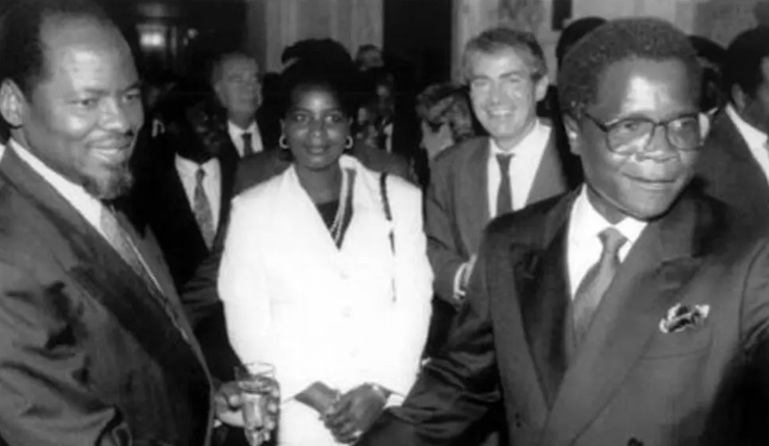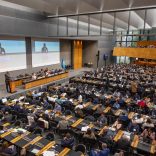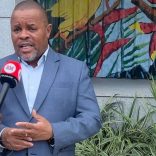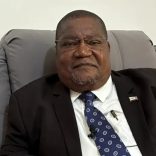Mozambique: Technical Commission's mandate includes non-partisan security forces, Constitutional ...
Mozambique: Renamo condemns ‘political deaths and electoral fraud’ 33 years after Rome Peace Agreement

File photo: DW
The Mozambican National Resistance (Renamo) on Saturday criticised the “political deaths and electoral fraud” occurring 33 years after the signing of the peace agreement that ended the civil war, calling for a renewed commitment to political dialogue aimed at reforms for reconciliation and peace.
“The successive political deaths, persecutions and electoral fraud have threatened the spirit of peace and compromised the reconciliation process. These events continue to undermine trust among Mozambicans and delay the dream of peaceful and just coexistence,” reads a Renamo statement released on Saturday.
Mozambique marked 33 years since the General Peace Agreement on 4 October. For 16 years (1977 to 1992), Mozambique experienced a civil war, also known as the “16 Years’ War,” which pitted the government army against Renamo. The conflict ended with the signing of the General Peace Agreement in Rome in 1992 between then-president Joaquim Chissano and Afonso Dhlakama, Renamo’s longtime leader. This agreement paved the way for the country’s first elections two years later, after a war with an estimated one million deaths and widespread destruction.
In its statement, Renamo recalled that the signing of the General Peace Agreement “was a pact of hope” to end the conflict, calling on everyone to participate broadly in political dialogue aimed at state reforms to ensure peace.
“A National Inclusive Dialogue is currently underway, and Renamo renews its hope that this process will yield concrete and positive results, as numerous agreements have already been signed that Frelimo has never fulfilled,” the statement reads.
Renamo lost its position as the opposition leader in Mozambique in the October 2024 elections, dropping from 60 to 28 seats, ceding the role to the Optimistic People for the Development of Mozambique (Podemos) party, an organisation that had never previously been in parliament. Podemos ran in the elections supporting the presidential candidacy of politician Venâncio Mondlane, securing 43 seats.
The Mozambique Liberation Front (Frelimo), in power since 1975, recalled the 16-year war that “left deep scars” on the social fabric, praising the collective efforts towards national reconciliation and the country’s development.
“Frelimo understands that achieving peace requires the continued effort of every Mozambican, and therefore urges everyone to continue cultivating dialogue, solidarity and mutual respect as fundamental elements for eliminating social inequalities and poverty, which often fuel instability,” reads the Frelimo party’s statement.
On 29 July, Renamo criticised the Mozambican president for calling for a reflection on the General Peace Agreement, accusing him of promoting “intolerance and governmental arrogance.”
At issue is a request from the Mozambican head of state on 17 July to members of the Defence and Security Forces to reconsider compliance with and the validity, including subsequent understandings, of the General Peace Agreement between the government and Renamo, which ended the 16-year war.
In April, Mozambican President Daniel Chapo signed into law the Political Commitment for an Inclusive National Dialogue, approved days earlier in parliament. The law is based on an agreement with political parties signed on 5 March to overcome the violence and social unrest that followed the October general elections.
This latest agreement to pacify Mozambique involved the creation of the Technical Commission for National Dialogue (COTE), which will, over two years, address the following issues: definition of republican and non-partisan security forces, a new electoral model, the revision of the Constitution of the Republic, reconciliation, national unity and government decentralisation.
The public consultation phase of the inclusive national dialogue at provincial and diaspora level begins this Monday, 6 October, according to a note from the Presidency of the Republic. The note also states that for the duration of the process “brigades will be created that will work in all provinces, all districts and in the diaspora, with a view to listening, consulting and creating space for all people (individuals and collectives) to participate.”
 












Leave a Reply
Be the First to Comment!
You must be logged in to post a comment.
You must be logged in to post a comment.